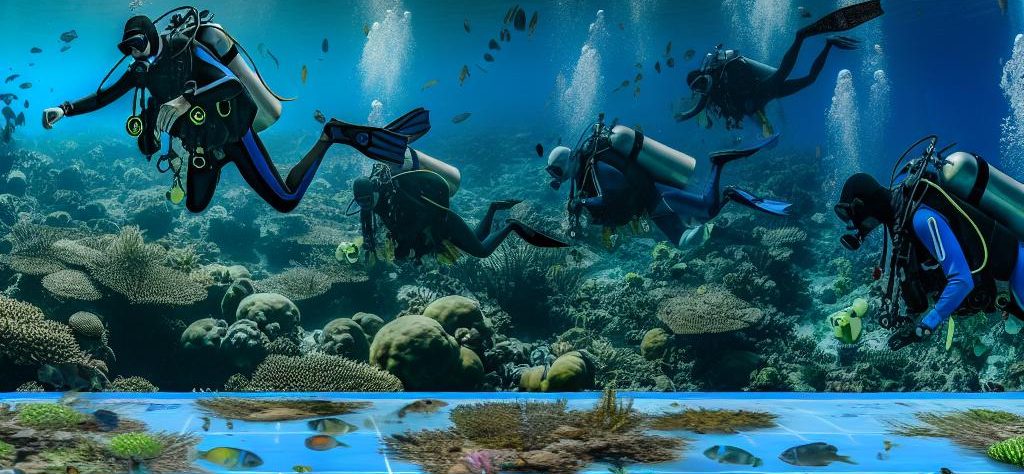The Role of Tourism in Diving Ecosystems
Tourism has evolved into a pivotal driver of economic growth for numerous coastal regions across the globe. Among its diverse forms, diving tourism stands out as a niche yet significant contributor to both local economies and global tourism revenue. However, the advantages brought by tourism must be balanced with the potential challenges it poses to delicate marine ecosystems. As diving continues to attract thousands of enthusiasts yearly, understanding its broader impact on both economic development and ecological sustainability becomes essential.
Positive Economic Contributions
Diving tourism in coastal areas brings a cascade of economic benefits that ripple through the local communities. Employment opportunities proliferate as the diving industry demands skilled labor for roles such as dive instructors, boat operators, and maintenance staff. Additional jobs are created in hospitality, retail, and transportation sectors, broadening the scope of economic enhancement.
The influx of tourists provides a boost to local businesses like restaurants, equipment rental shops, and accommodation facilities. These businesses, in turn, contribute to local tax revenues, enabling governments to reinvest in community infrastructure and public services. In many cases, such revenue streams have facilitated the initiation of marine conservation projects, as public awareness grows regarding the need to maintain and protect the natural allure that attracts tourists in the first place.
Moreover, diving tourism often incentivizes local and national governments to allocate funds towards the conservation and restoration of marine ecosystems. This can manifest in the form of improved environmental policies, enhanced enforcement of existing regulations, and the development of long-term sustainable tourism strategies.
Ecological Challenges
While the economic gains are substantial, the ecological impact of increased human activity in diving locations cannot be overlooked. Human presence and actions in these sensitive areas can lead to several ecological disturbances, warranting careful monitoring and management.
Coral Damage
Corals, intricate structures formed by living organisms, are highly sensitive to physical disturbances. Unintended contact from divers, such as touching or trampling, can cause irreparable damage to these fragile ecosystems. Anchors from diving boats, if used irresponsibly, can drag along the sea bed, breaking coral branches. These actions not only harm individual coral colonies but also impede the overall biodiversity that coral reefs support.
Pollution
Pollution presents another significant threat. Boat operations and activities around dive sites generate various forms of waste, including plastics, fuel residues, and human litter. Such waste contributes to water pollution, with detrimental consequences on marine life forms. Moreover, chemicals like those found in sunscreens, though seemingly benign, can induce bleaching in corals and affect the health of marine organisms, creating cascading effects on the entire marine food web.
Disturbance to Marine Life
The presence of large numbers of divers can also disturb marine species, with excessive noise and movement altering natural behaviors. Sensitive species might stray from essential feeding or breeding grounds, which can result in population declines over time. It becomes crucial to manage the number of divers and the manner in which they interact with the underwater environment to prevent such disturbances.
Conservation Initiatives
Recognizing the ecological challenges posed by diving tourism, various conservation efforts have been initiated globally to safeguard these environments. An essential strategy has been the establishment of Marine Protected Areas (MPAs), which function to regulate and often restrict human activities within designated zones to preserve marine biodiversity.
Numerous stakeholders, including governments, local communities, environmental organizations, and the tourism industry, collaborate on these initiatives. One example is the Coral Reef Alliance, known for its integrated approach towards reducing human impacts on coral ecosystems. Such organizations prioritize education, community engagement, and the promotion of sustainable tourism practices that allow economic viability without compromising ecological health.
Promoting Sustainable Diving Practices
Institutionalizing sustainable diving practices is a cornerstone in mitigating the negative footprint of diving tourism. Education serves as a powerful tool in this regard, with divers being taught the importance of maintaining a respectful distance from marine life and minimizing their physical interaction with corals.
Dive operators are encouraged to adopt ecological approaches, such as the use of mooring buoys that prevent anchor-related damages and ensuring responsible waste management systems on their vessels. By ingraining these practices into their operations, dive operators can significantly diminish their environmental impact and foster a culture of conservation among tourists.
The Role of Tourists
Tourists themselves are pivotal in the effort to protect diving ecosystems. By consciously selecting operators who adhere to environmental best practices, tourists can directly influence the market towards more sustainable paths. Respectful behavior, driven by an understanding of the fragility of marine environments, not only preserves the allure of the destination but also enriches the tourists’ experience.
Educational campaigns that highlight the significance of marine conservation can greatly enhance tourists’ awareness and responsibility. Understanding the impact of actions as simple as sunscreen choice can spur tourists to make environmentally friendly decisions, thus contributing positively to the well-being of coral and marine life.
Conclusion
In reviewing the intricate relationship between tourism and marine ecosystems, it becomes clear that the benefits of diving tourism must be carefully weighed against its ecological costs. While tourism brings valuable economic growth and opportunities, it does not exist in isolation from environmental considerations. Through a combination of strategic conservation initiatives and a firm commitment to sustainable practices, it is possible to safeguard the delicate balance that allows tourism to thrive while preserving the invaluable underwater habitats we treasure.
By adopting a holistic approach that embraces both economic and ecological perspectives, stakeholders in the diving industry can work towards a future where tourism serves as a guardian rather than a threat to our marine ecosystems.

